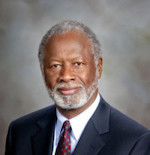
Cleveland Mayor-elect Justin Bibb
Today’s sure-footed announcement from Justin Bibb’s transition team tells us a lot about how the new mayor intends to govern. At 34, Bibb is the second-youngest mayor in Cleveland’s history. The youngest, Dennis Kucinich, was widely referred to as the “boy mayor”. But anyone who expects to bamboozle this new mayor is likely in for a surprise. He does his homework, he thinks strategically and long term, and as a consequence is seldom caught off-guard.
Here are some illustrative takeaways from the past week that are reinforced by today’s announcement. Some of these takeaways are but confirmations of longtime Bibb observers [O.k., we know there aren’t that many of us.]:
1. There’s a new sheriff in town.
Inclusion, equity, and openness will be fundamental values. Whatever the virtues of the 12 year Mike White reign [1989-2001] and the 16-year Jackson regime, inclusion, equity and openness are not the first things that come to mind when their mayoralties are recalled. White was an obsessive micro-manager for whom fear was a tool. He made grown men cower and cry. Jackson was so adept at non-communication as to make Bill Belichick seem a motor mouth by comparison.
By contrast, Bibb talks about listening to citizens, going out to meet them where they are. He speaks of “centering resident voice”. Today’s announcement reinforces that commitment.
Co-chair Richard Gibson is a case in point. Pastor of back-in-the-weeds St. Elizabeth Baptist Church [a description subject to change with the opening of the Opportunity Corridor], Gibson is a former lawyer and businessman who did legal work on the Gateway project. During the Jackson administration Gibson and Jawanza K. Colvin of Olivet Institutional Baptist showed up at City Hall as a dynamic duo with a cart full of boxes containing more than 20,000 petition signatures challenging the administration’s rollover on the “Q” deal to upgrade what is now Rocket Mortgage Field House. City Council under its president, Kevin Kelley, whom Bibb beat decisively in last week’s mayoral election, refused to accept the petitions until legally forced to do so. Gibson’s selection is a clear signal that those who were kept voiceless under the prior administration now have a seat at what will be a round and much larger table.
Incidentally, Gibson’s designation is also a shot across the bow of those black preachers who crowded off stage and off camera most of the Bibb volunteers who did the hard work of the campaign all the way through the primary, which is when many of the clergy showed up. Bibb did appear in many churches, especially on the east side, during the campaign, but not until after his primary campaign did many of those clergy scramble to find seats on the victory train.
2. Bibb is almost uniquely free of ties to special interests
The fact that Bibb has never held public office was no deterrent to voters who clearly wanted a break with the old way of running the city. It will quite possibly prove an asset to his ability to implement his agenda. Though we have yet to review the financials of his campaign, Bibb arguably comes into office with fewer strings than any of his predecessors as far back as memories may stretch. He had endorsements from elected officials, certainly, though it should be noted, precious few from black ones. But his apparent entry into public office with few if any discernible commitments to special interests means that his ability to advance his stated agenda won’t be short-circuited before it begins.
While each of the co-chairs carries somewhat of a public profile based on their career accomplishments, with one possible exception, none comes bearing any overt political tags. Erika Anthony’s work to increase voter turnout has been decidedly nonpartisan. Only John Ryan, who serves as Senator Sherrod Brown’s state director, has any obvious political ties. When we inquired why the press release naming the co-chairs omitted reference to the senatorial connection, a senior level Bibb teamer said they wanted to emphasize that Ryan was there in a personal capacity, not repping his boss. While that may be a hard row for Ryan to hoe, it seems that his labor background is meant to balance the two businessmen — Paul Clark and Darrell McNair — on the team.
3. The new administration will prioritize smartness and competence over old-boy networks.
The same skills that enabled Bibb to sense the mood of his electorate, see an opening and blow right through it, presage the likely approach and style of his administration.
Cleveland has been a sleepy town for decades, and perhaps no one was more asleep than the elected officials who ignored Bibb’s campaign launch and gave him the leeway to gain momentum long before they recognized the strength of his rush to the front. His campaign was smart, professional, focused and disciplined from the start. He was respectful to his elders, seeking their advice but not asking their permission. Because he did his homework and was aided by a strong team he relied upon, Bibb was seldom caught off-guard during the campaign.
Looking at his co-chairs, one sees a team of builders and leaders. It’s easy to conclude that these qualities will be replicated in a Bibb cabinet and administration.
4. We hate to have to say this, but the silly chatter about Bibb’s racial bona fides needs to stop.
It’s always been clear that Bibb is an authentic son of the southeast side. He’s grown up black and never used that as a crutch. He’s taken advantage of what life has offered him and positioned himself to come home and make his community better. His administration is going to be a direct challenge to the hustlers, hangers-on and bottom feeders who gravitate to the smell of money and the chance to prey on the ignorance of the ill-informed.
To that end, the recent actions of city council’s Democratic caucus, which includes the entire body, must be applauded. Councilman Blaine Griffin is now Council President-elect, marking the first time in the city’s history that the mayor and the council president are both black.
Of course, prior to Carl Stokes winning the mayor’s seat in 1967, both roles were always held by white men.
The point here is that, beginning sometime after George Forbes became the first black president of city council, a pattern emerged whereby the council president was always of a different race than the mayor. The rule was so unshakable that some people came to believe it was, if not a requirement of nature, at least a city ordinance or charter provision.
The voters have given Bibb a mandate to lead differently and to bring the city fully into the 21st century. Council’s ability to overcome a hoary, dispiriting, and limited custom suggests that they may be ready to aid in the work as worthy partners instead of dead weight. But if they fail to adjust to the new era, like the out-of-touch era that Kelley represented, they may find themselves replaced by folk they never saw coming.
• • •• • •
RELATED:












